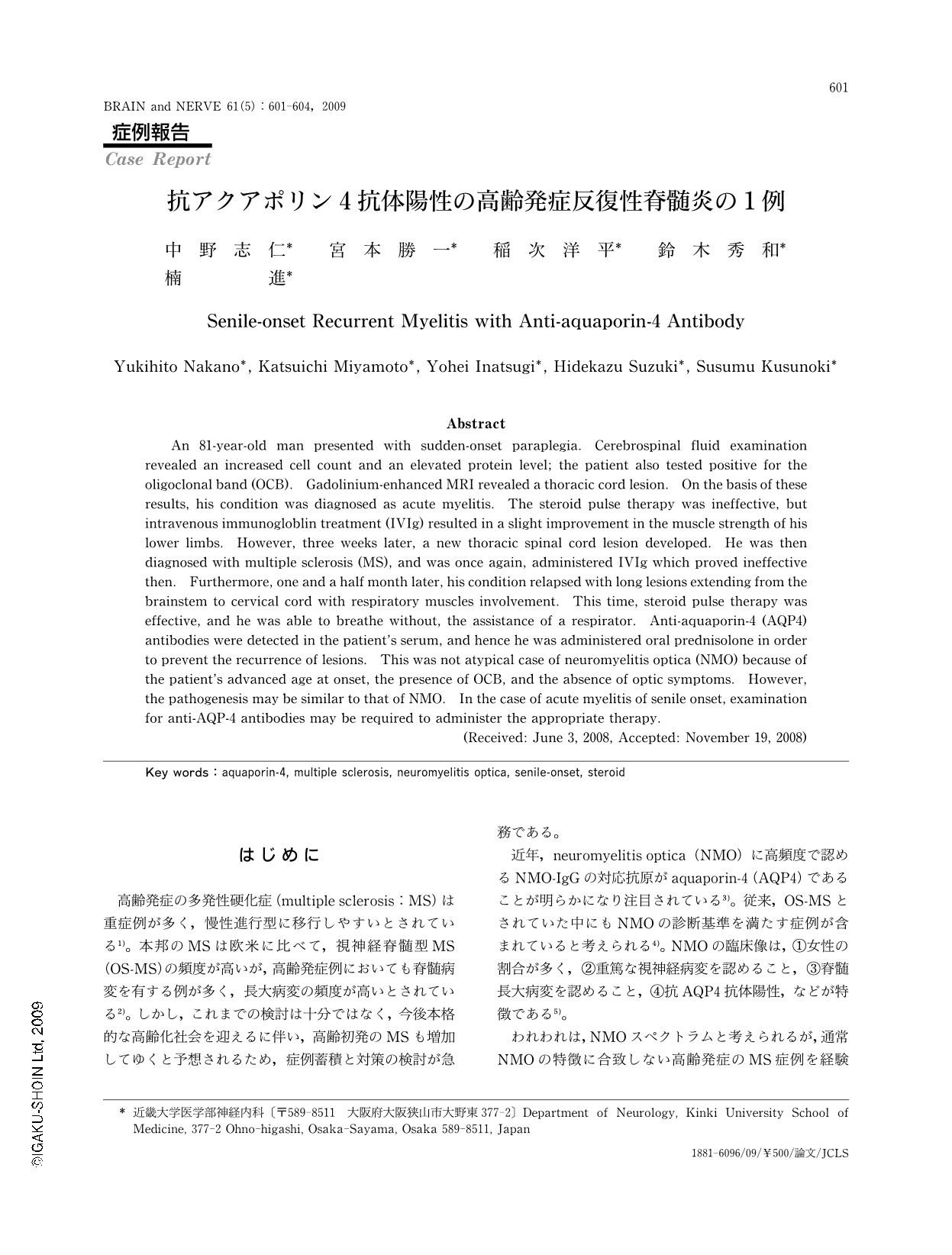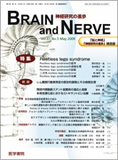Japanese
English
- 有料閲覧
- Abstract 文献概要
- 1ページ目 Look Inside
- 参考文献 Reference
はじめに
高齢発症の多発性硬化症(multiple sclerosis:MS)は重症例が多く,慢性進行型に移行しやすいとされている1)。本邦のMSは欧米に比べて,視神経脊髄型MS(OS-MS)の頻度が高いが,高齢発症例においても脊髄病変を有する例が多く,長大病変の頻度が高いとされている2)。しかし,これまでの検討は十分ではなく,今後本格的な高齢化社会を迎えるに伴い,高齢初発のMSも増加してゆくと予想されるため,症例蓄積と対策の検討が急務である。
近年,neuromyelitis optica(NMO)に高頻度で認めるNMO-IgGの対応抗原がaquaporin-4(AQP4)であることが明らかになり注目されている3)。従来,OS-MSとされていた中にもNMOの診断基準を満たす症例が含まれていると考えられる4)。NMOの臨床像は,①女性の割合が多く,②重篤な視神経病変を認めること,③脊髄長大病変を認めること,④抗AQP4抗体陽性,などが特徴である5)。
われわれは,NMOスペクトラムと考えられるが,通常NMOの特徴に合致しない高齢発症のMS症例を経験した。貴重な症例と考えられるため,若干の文献的考察を加えて報告する。
Abstract
An 81-year-old man presented with sudden-onset paraplegia. Cerebrospinal fluid examination revealed an increased cell count and an elevated protein level; the patient also tested positive for the oligoclonal band (OCB). Gadolinium-enhanced MRI revealed a thoracic cord lesion. On the basis of these results, his condition was diagnosed as acute myelitis. The steroid pulse therapy was ineffective, but intravenous immunogloblin treatment (IVIg) resulted in a slight improvement in the muscle strength of his lower limbs. However, three weeks later, a new thoracic spinal cord lesion developed. He was then diagnosed with multiple sclerosis (MS), and was once again, administered IVIg which proved ineffective then. Furthermore, one and a half month later, his condition relapsed with long lesions extending from the brainstem to cervical cord with respiratory muscles involvement. This time, steroid pulse therapy was effective, and he was able to breathe without, the assistance of a respirator. Anti-aquaporin-4 (AQP4) antibodies were detected in the patient's serum, and hence he was administered oral prednisolone in order to prevent the recurrence of lesions. This was not atypical case of neuromyelitis optica (NMO) because of the patient's advanced age at onset, the presence of OCB, and the absence of optic symptoms. However, the pathogenesis may be similar to that of NMO. In the case of acute myelitis of senile onset, examination for anti-AQP-4 antibodies may be required to administer the appropriate therapy.
(Received: June 3,2008,Accepted: November 19,2008)

Copyright © 2009, Igaku-Shoin Ltd. All rights reserved.


